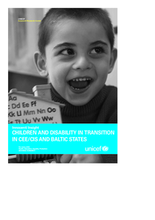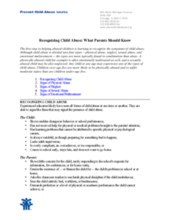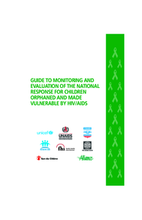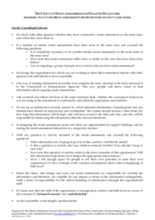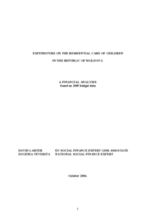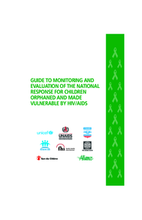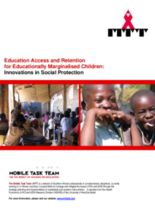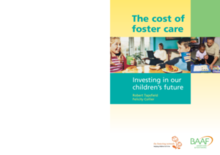Displaying 491 - 500 of 565
Description and findings of a pilot survey designed to monitor and evaluate national responses for children orphaned and made vulnerable by HIV/AIDS. Shows that over 99% of all children live in family care.
Report presents and analyzes new research and data around children with disabilities in the region, the effects of institutional care, and the need for family support services.
A three-page document outlining how to recognize signs of abuse, including sexual abuse, physical abuse, or neglect.
A guide for governments, international organizations and NGO’s for measuring, monitoring and evaluating the national response for children orphaned and made vulnerable by HIV/AIDS.
Comprehensive framework and resource guide intended to aid a situation analysis of orphans and vulnerable children. Includes relevant example analyses to illustrate the available variety of approaches and their components.
Lists ethical “do’s and dont's” specific to Consultants/Advisors, Managers/Supervisors, and Field-Level Workers arranging and conducting Needs Assessments in disaster situations.
Reports on the financial costs of residential care for children in the Republic of Moldova. Highlights significant financial inefficiencies and advocates for closure of residential institutions.
Guidance on establishing a national monitoring and evaluation process to track a country’s response to children orphaned and made vulnerable by HIV and AIDS. It includes methods and tools for measurement, and recommends a set of core indicators to record national status and changes.
This paper provides a comprehensive contextual overview of the educational challenges faced by orphans and vulnerable children in sub-Saharan Africa. It includes recommendations for future education policy in the context of HIV and AIDS, as well as provides country specific data on current policies and social protection programs.
This report assesses the expenditure which is required to transform foster care services across the UK, in order to give children in public care the same opportunities to have a successful future as other children. Contains relevant statistics and social welfare system reform recommendations.

